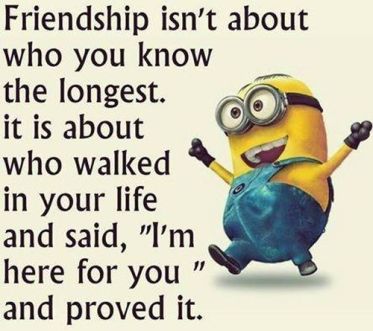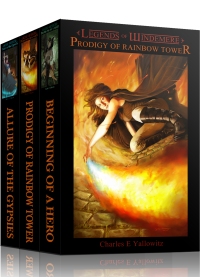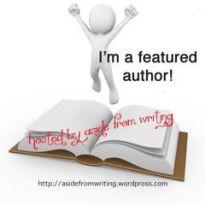I was trying to find a way to bring up this subject in a fun way. Your definition and requirements for friendship might be very different from mine. Even in fiction, you might see somebody as a bad friend to the protagonist while I see them as a good friend. A very fluid topic that plays a major role in The Spirit Well. So, I’m going to pose a question, answer the question, and see what people say in the comments.
- How important to you is friendship in fiction?
As a writer of ensemble stories, this is a core focus because your heroes need to be friends to some extent. Yes, you can have tension and squabbling, which puts a few more in the category of coworkers. A Wolverine/Cyclops type of relationship where they butt heads in private matters while backing each other up on the battlefield. It is easier to work characters as close friends that border on a family like I do with the champions. It removes that subplot of issues that can get overused at times and make it seem like friendship only exists in fiction to be broken. Even in what I read, I find myself enjoying characters that get along more than fight. This could also stem from me getting sick of the drama of reality. - Should friendships move quickly or slowly when writing?
YES! Honestly, this depends a lot on the characters themselves as well as their situation. There might not be the luxury of taking their time with friendship like when Delvin is thrown into the champion prophecy. Luke and Nyx started out with friction and developed a partnership through shared misadventures. Meanwhile, Timoran was an outsider for most of his debut book until it’s revealed that he’s one of them. Then, he fit in rather quickly. When working with groups, it helps to have a character that brings everyone together and smooths the edges. On the other end of the spectrum, you can let it go slowly since forced relationships are very easy to pick out. - Can villains have friendships?
Of course they can, but it really depends on the type of villain. Most antagonists are arrogant, paranoid to some extent, emotionally withdrawn, and see other people as tools instead of friends. This makes a friendship difficult to create unless you soften the villain. For example, Sesshomaru (demon) in Inuyasha becomes more of an anti-hero when he is traveling with Rin (little girl). A way to avoid this is to have the friendship be pre-existing even if one of the characters hasn’t appeared yet. Maybe the antagonist calls on this person to help after several failures. Both of them are evil, but there’s a bond that is stronger than their own flaws. This is a key to nearly every friendship. The connection has to be able to withstand the flaws of those involved or it will collapse rather easily. - What do you look for in a fictional friendship?
Personally, I like seeing characters that back each other up regardless of them having a personal issue. The broken friendship twist is how you make new rivalries and villains, which can be undone down the road depending on what happened. Accidents and misunderstandings occur in real life, so I don’t see why they shouldn’t happen in fiction too. There is a natural feeling to seeing people shift and change while remaining beside each other. At least if they’re working toward a mutual goal or facing a common enemy that neither can defeat alone. I guess it does happen where two people will self-destruct and both go down because they can’t go it alone. Yet, I see that happen a lot in fiction and would rather see friends that work through the hard patches instead of getting consumed by them.






I love buddy fiction, and the bickering feels right for those scenes. When the heat is on they stand beside each other and take care of business. I’ve used this in a couple of my stories. I had another dream that lends itself to this idea too. More notes for the short story file.
LikeLiked by 1 person
I love writing bickering scenes between friends. That and banter even in the face of danger. Cassidy and Lloyd have definitely found a nice groove with that. Similar to Luke and Nyx from Windemere.
Think you’ll do another collection next year?
LikeLiked by 2 people
I’m going to finish the baseball stuff. It won’t be another Notebook, but I’m going to keep writing short fiction. It could happen in 2017. I did a lot of the bickering stuff between Ethan and Coop in Panama.
LikeLike
Probably be a nice change. Especially if you time it to release during the World Series.
LikeLiked by 1 person
I’m thinking more around Opening Day. I won’t force it though.
LikeLike
When is opening day? Seems like baseball never ends around my neck of the woods.
LikeLiked by 1 person
April.
LikeLike
It’s funny you get ideas from dreams, so do I!!
LikeLiked by 1 person
A very good discussion on friendships. I liked the fact you brought out the certainty of villain friendships.
LikeLiked by 1 person
Thanks. We tend to overlook that side of things. Guess it makes things easier to have villains be anti-social loaners.
LikeLiked by 1 person
I know or have dumb stooges around.
LikeLike
In Sue Coletta’s Wings of Mayhem the protagonist had a friend who had the total opposite personality. Shawnee was tough, cold, bitter. Nadine was soft, warm, and forgiving. They didn’t banter or bicker, but the opposing personalities helped the author show some of Shawnee’s softer side. Nadine would pull Shawnee off the rafters if she got too high on her horse.
LikeLiked by 1 person
Interesting. Did they have anything in common?
LikeLike
Love for cats. But that was about it .Nadine’s parents had been kid when she was young and Shawnee had known her for years. Their parents had been friends.
LikeLike
You got it just right, Charles! I think just as with real people, there have to be ups and downs and squabbled and disagreements but when push comes to shove, they have each other’s backs no matter what.
LikeLiked by 1 person
Very true. Hard to remember that some days. Friendship in reality has taken on a very interesting twist thanks to social media.
LikeLiked by 1 person
Being a good friend can be hard work! My mother told me that…
LikeLiked by 1 person
Reblogged this on Don Massenzio's Blog.
LikeLike
Thanks for the reblog.
LikeLiked by 1 person
You’re welcome.
LikeLike
I love friendships in fiction. I haven’t written a book yet where it hasn’t been important. Even my villain in my current WIP has friends, some are blind, obedient servants but there is one that’s a monster just like him.
LikeLike
Since I write a lot of ensemble and duo stuff, friendship is a key component. I agree that villains need some friends too. Some of mine have friends, but others are kind of loners or see no point in it.
LikeLike